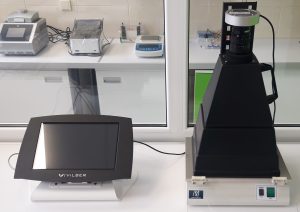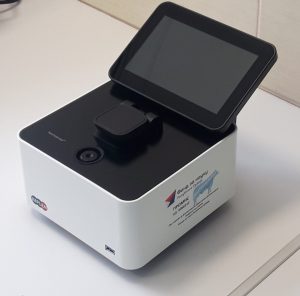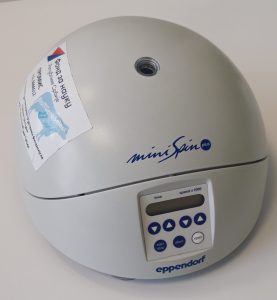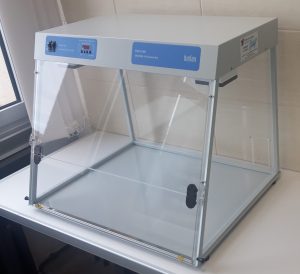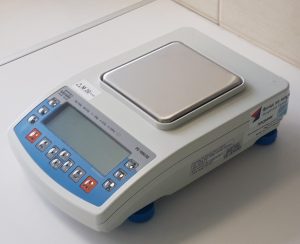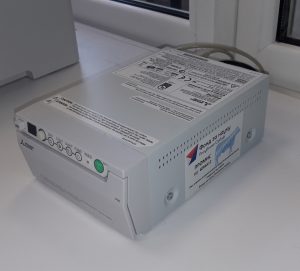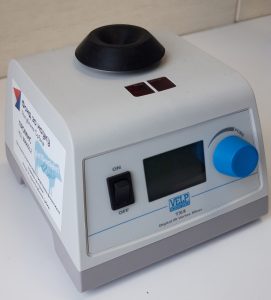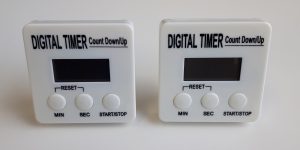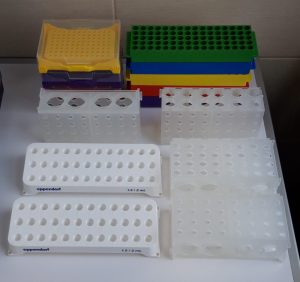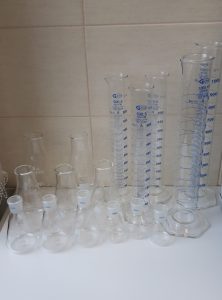Equipment for the Laboratory for Molecular Genetics
In the second quarter of the project, laboratory equipment for the project was completed and installed. This equipment is now part of the Laboratory for Molecular Genetics.
Its main purpose is to educate students of bachelor, master and PhD studies through practical classes in the field of Genetics and animal breeding. In addition to the basic purpose, the goal of the laboratory's development is to participate in national and international projects, and the plan is accredited primarily for the analysis of parental control in domestic animals, which greatly contributes to increasing the efficiency of breeding programs.
Gel Documentation System
Model: Vilber Lourmat DOC-PRINT CX3 with BIOVISION Software
CX3 camera: 3 megapixels resolution extendable to 20 megapixels; passive cooling. 16-bit – 65 536 grey levels; field of view: 24x18cm.
Hardware: ABS hood, F590 emission filter for standard gel applications; very large 12.6” touch screen interface display with Magster™ technology. Stand-alone system - No computer require.
Software: VisionCapt software with full GLP compliance. Molecular weight calculation, band quantification, colony counting, distance calculation, text annotation and image enhancement included.
Applications: DNA and RNA gels and fluorescence stain imaging. Colorimetric stained protein gels, X-Ray film, autorads, SSCP gels, colony dish and flask imaging and other EPI white light applications.
Spectrophotometer
Model: NanoPhotometer N60-Touch UV/Vis
Specifications
Processing Power/Software: Linux based NPOS, Intel Celeron dual core 2.4 GHz, 32 GB Internal Data Storage, 2x USB A, USB B, HDMI, Ethernet, WiFi, Windows 7, 8, 10 (32 & 64 bit), OS X, iOS, Android OS.
Display: 1024 x 600 pixels. Glove compatible touchscreen
NanoVolume Performance: Detection Range dsDNA: 1 – 16,500 ng/µl. Detection Range BSA: 0.03 – 478 mg/ml. Minimum Sample Size: 0.3 – 2 µl. Photometric Range (10 mm equivalent): N60: 0.02 – 330 A. Path Length: 0.67 and 0.07 mm. Dilution Factor: 15 and 140. Vortex: 2,800 rpm; tube size up to 2.0 ml.
Optical Specifications: Wavelength Scan Range: 200 – 900 nm. Measure Time For Full Scan Range: 2.5 – 4 s. Wavelength Reproducibility: ± 0.2 nm. Wavelength Accuracy: ± 0.75 nm. Bandwidth: < 1.8 nm. Absorbance Reproducibility: (Lid 15): < 0.002 A @ 0 – 0.3 A @ 280 nm; CV < 1% @ 0.3 – 1.7 A @ 280 nm. Absorbance Accuracy: < 1.75% @ 0.7 A @ 280 nm of the reading. Stray Light: < 0.5% @ 240 nm using Na. Optical Arrangement: 1 x 3648 CCD Array.
Mini centrifuge
Model: MiniSpin plus G, incl. „Black Line“ rotor, 230 V/50-60 Hz with adapters for 0.2 ml tubes
Specifications
Centrifuge with fixed, angular rotor of capacity: 12 x 1.5 / 2 ml. 800 – 14,500 rpm (100 rpm steps). Max. RCF: 14,100 × g. Speed programming and display readings in “rpm” and “rcf”. Separate command for fast and short spin. Timer: 15 sec to 99 min, with continuous operation. Acceleration time to max speed: 13 s. Deceleration time from max speed: 12 s. Noise level: < 52 dB(A). Max. power consumption 85 W. Adapters for 0.2 ml tubes, 2 sets (1 set = 6 pcs).
UV-cabinet for PCR
Model: UVC/T-AR BIOSAN
Specifications
Walls material: Plexiglas: Polymethyl methacrylate ALTUGLAS EX. Working surface material: steel with chemicals resistant powder coating. Open UV-lamp: 1 x 25W built‑in bactericidal UV-C, TUV 25W 1SL/25. UV radiation level: 18 mW / cm2 / sec. Radiation type UV (λ = 253.7 nm), ozone-free. Digital time setting of direct UV exposure: 1 min–24 hrs / non–stop (increment 1 min). UV-recirculator: 1x25W (efficiency >99% per 1 hour). Daylight lamp (for working area illumination): 1 x TLD-15W. Working area: 645 × 490 mm.
Analytical balance
Model: RADWAG PS 1000.R2, measuring range 1000/0,001 g
Specifications
Maximum capacity: 1000 g.
Minimum load: 20 mg.
Readability: 0.001 g.
Tare range: -1000 g.
Repeatability: (Max): 0.0015 g.
Repeatability (5% Max): 0.0005 g.
Linearity: ±0.003 g.
Stabilization time 2 s.
Adjustment: internal (automatic).
Thermal Printer
Model: Mitsubishi P95 DW
Specifications
Printing method: Thermal sensitive.
Resolution: Printhead 325 dpi (12.8 dots/mm), up to 1280x5760.
Color depth: 256 greyscales.
Print Speed / Picture: 4.9 -5.9 sec (1,280 x 960).
Print size (cm): Thermal paper roll, 110mm wide.
Print Area: 100x75mm (standard) / 100x450mm (max.).
Print capacity: 220-245 prints and 18-20m long approx.
Depending on paper reference.
Printer memory: 1 frame (8Mb), repeat print with copy button.
Microtube racks
Model Eppendorf
For microtubes with a volume of 1.5 - 2.0 ml. UV resistant and autoclavable, Contains 3 rows for 12 places, 36 in total. Stand for 36 x 1.5 / 2.0 ml Eppendorf tubes. 2 pieces.
Model BRAND
For PCR tubes with a volume of 0.02 ml. Pcr box / Stand made of polypropylene. Intended for 0.2 ml tube and plate with 96 wells. Withstands temperatures from 80 ° C to +121 ° C. 4 pieces.
Model BIOLOGIX
Stands (racks) for microtubes with a volume of 1.5 - 2.0 ml. Capacity of 80 wells. Made of polypropylene in different colors (red, purple, green and yellow). They have a numerical network for identification. 5 pieces.
Model Heathrow
Made of durable propylene. Capacity: 4 x 50 ml or 12 x 15 ml conical tube, 32 x 1.5 ml or 32 x 0.5 ml microtube. Autoclavable.
Erlenmeyer flasks and graduated cylinders
Erlenmeyer flasks
Made of glass. Graduated. They can be used to prepare agarose gel in a microwave oven and hob.
Volumes: 100 ml (3 pieces), 250 ml (3 pieces), 500 ml (3 pieces) and 1000 ml (2 pieces).
Graduated cylinders
Made of glass. Graduated.
Measuring range: 500 ml (3 pieces) and 1000 ml (2 pieces).

